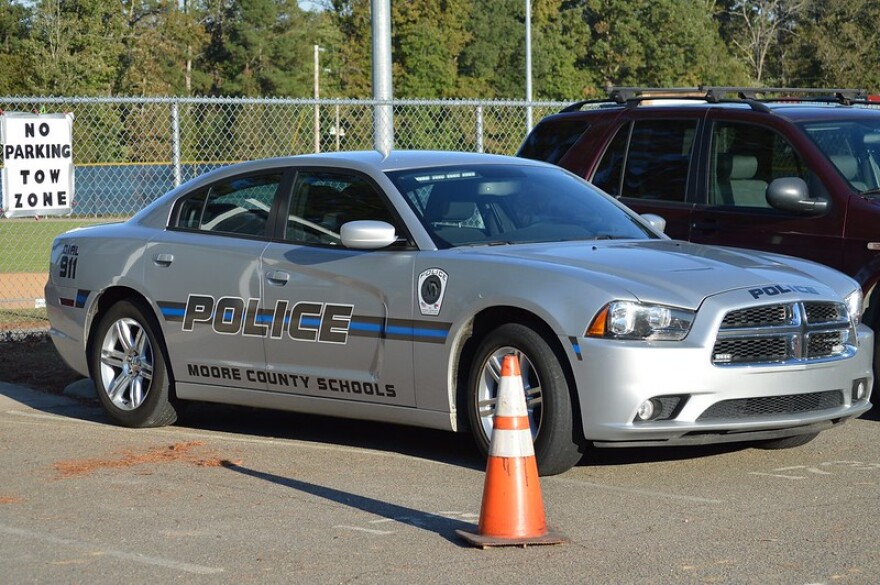School resource officers have long been a mainstay in North Carolina’s public schools. For some parents, students and administrators, the presence of school resource officers offers reassurance of heightened safety in the wake of school shootings and violence. For others, the constant presence of law enforcement inside hallways and classrooms creates a culture of fear and trauma, stemming from disproportionate arrest and conviction rates of black and brown students.
Host Frank Stasio talks to Aissa Dearing, student organizer and co-founder of the Durham Youth Climate Justice Initiative; Fernando Martinez, director of organizing for the Education Justice Alliance; William Lassiter, deputy secretary for juvenile justice for the North Carolina Department of Public Safety and chair of the North Carolina Task Force for Safer Schools; and Rep. Craig Horn, Union County Republican in the North Carolina General Assembly.
Aissa Dearing co-organized a youth march in downtown Durham on June 13, where students and young people called for Durham Public Schools to reallocate the funds spent on school resource officers to restorative justice resources and staff, including increased access to on-site therapists, psychologists, social workers, career counselors, substance abuse specialists and sexual health educators. Dearing also recently wrote an open letter to the Board of Education, detailing why school resource officers contribute to the school-to-prison pipeline. “I would argue that the institution of policing is a bad institution. It’s not about a few good SROs reaching out to mentor students. It’s about the institution as a whole and what effect that institution has on a school,” she says.
Fernando Martinez has seen the same disproportionate policing in his Wake County community. “Other than guns and drug-related incidents, most of the things that SROs intervene [in] could be dealt with under the student code of conduct. Police officers — because they are already placed in the schools — choose to press charges.”
Though Deputy Secretary Lassiter concedes that student resource officers have, historically, arrested and referred black and brown students to outside law enforcement more often than white students, he also says that plans for reform are underway. He says that the N.C. Task Force for Safer Schools is asking itself and the community several key questions about how best to address inequity, including: “What types of officers and what types of qualifications are we looking for, for the officers that are walking into those schools?”
Rep. Horn, who co-sponsored a school safety bill last year, believes that additional training for school resource officers that includes racial equity units will be helpful in improving student-SRO relations. He also notes that SROs are already well-received in some schools. “As I’ve seen in dozens of schools that I’ve personally visited, the relationship has been incredible. That’s not to say that we don’t have some police officers that shouldn’t be in the schools. ... Not everybody that’s in a profession should be in that profession, and we need to help those find another way to make a living. In a broader sense, school resource officers have provided an incredible level of security in the schools amongst the students, as well as the teachers and administrators and the parents.”










